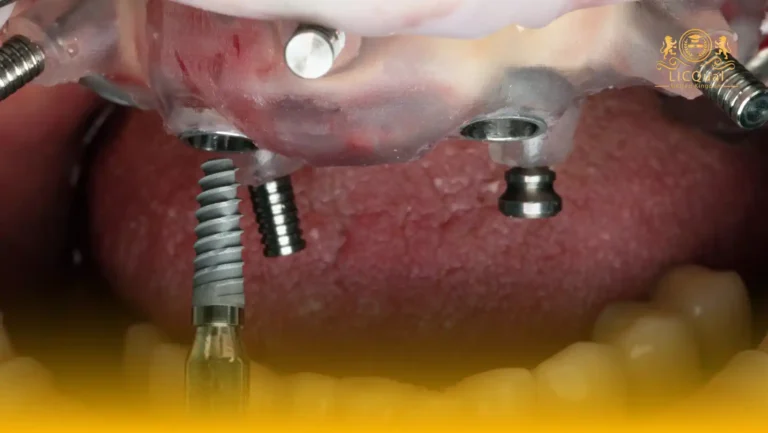The LICQual Level 3 Diploma in Pharmacy Practice Research (Dip Pharmacy Practice Research) is a comprehensive professional qualification designed for pharmacy practitioners and healthcare professionals who are eager to advance their careers, expand their knowledge, and enhance their Continuing Professional Development (CPD). This internationally recognized diploma equips learners with the essential skills and knowledge required to conduct research in pharmacy practice, critically evaluate clinical evidence, and apply findings to improve patient care and pharmacy services.
The course is ideal for professionals who wish to deepen their understanding of research methodologies, ethical considerations in pharmacy research, data analysis, and the application of evidence-based practices within a healthcare setting. Learners will gain practical experience in designing and conducting research projects, interpreting results, and presenting findings in a professional and ethical manner, ensuring that their work meets the highest standards of pharmacy practice.
Centres delivering this qualification are required to maintain rigorous standards, employing competent and qualified staff and providing all necessary learning materials and resources. This ensures that learners receive high-quality training, personalized support, and access to the tools needed to succeed in both their studies and professional practice.
By completing the LICQual Level 3 Diploma in Pharmacy Practice Research, learners can not only enhance their professional credibility but also make a meaningful contribution to improving pharmacy services and patient outcomes. This diploma represents a valuable step for those committed to lifelong learning, research excellence, and career progression in the pharmacy sector.
Course Overview
Qualification Title
LICQual Level 3 Diploma in Pharmacy Practice Research (Dip Pharmacy Practice Research)
Total Units
6
Total Credits
60
GLH
240
Qualification #
LICQ2201180
Qualification Specification
To enroll in the LICQual Level 3 Diploma in Pharmacy Practice Research (Dip Pharmacy Practice Research), applicants must meet the following criteria:
|
Qualification# |
Unit Title |
Credits |
GLH |
|---|---|---|---|
|
LICQ2201180-1 |
Introduction to Pharmacy Research |
10 |
40 |
|
LICQ2201189-2 |
Research Ethics and Governance |
10 |
40 |
|
LICQ2201180-3 |
Research Methodologies |
10 |
40 |
|
LICQ2201180-4 |
Data Collection and Analysis |
10 |
40 |
|
LICQ2201180-5 |
Evidence-Based Practice |
10 |
40 |
|
LICQ2201180-6 |
Research Reporting and Dissemination |
10 |
40 |
By the end of this course, learners will be able to:
Unit 1: Introduction to Pharmacy Research
Learning Outcomes:
- Understand the role and importance of research in pharmacy practice.
- Explain different types of research relevant to pharmacy and healthcare.
- Recognise how research contributes to evidence-based practice and patient care.
- Identify key principles of professional conduct in research activities.
Unit 2: Research Ethics and Governance
Learning Outcomes:
- Apply ethical principles in planning and conducting pharmacy research.
- Demonstrate knowledge of legal and regulatory requirements for research.
- Evaluate issues of informed consent, confidentiality, and patient protection.
- Understand the processes for ethical review and approval in research projects.
Unit 3: Research Methodologies
Learning Outcomes:
- Compare and contrast qualitative and quantitative research methods.
- Design a basic research study relevant to pharmacy practice.
- Develop clear research objectives, questions, and hypotheses.
- Select appropriate sampling methods for different research scenarios.
Unit 4: Data Collection and Analysis
Learning Outcomes:
- Collect, organise, and validate data using appropriate methods and tools.
- Analyse data using basic statistical techniques and software.
- Interpret research results accurately and critically.
- Present data clearly for professional or academic purposes.
Unit 5: Evidence-Based Practice
Learning Outcomes:
- Critically appraise scientific literature for validity and relevance.
- Apply research findings to improve pharmacy practice and patient care.
- Evaluate the impact of evidence-based interventions in clinical settings.
- Demonstrate problem-solving skills in implementing research outcomes.
Unit 6: Research Reporting and Dissemination
Learning Outcomes:
- Prepare comprehensive and ethically sound research reports.
- Communicate research findings effectively to colleagues, stakeholders, and patients.
- Apply professional writing and presentation standards in research dissemination.
- Evaluate the impact of research on pharmacy practice and healthcare delivery.
The LICQual Level 3 Diploma in Pharmacy Practice Research and Level 3 Certificate in Advanced Drug Delivery Systems are designed for professionals aiming to enhance their careers, expand their knowledge, and boost their Continuing Professional Development (CPD). These courses are ideal for:
- Aspiring Pharmacists – Learners preparing for a career in pharmacy who want advanced knowledge of research and drug delivery systems.
- Pharmacy Technicians – Professionals seeking to deepen their expertise in pharmacy practice, research, and advanced delivery technologies.
- Healthcare Professionals – Nurses, clinicians, and allied health staff wishing to understand pharmacy research or drug delivery principles to enhance patient care.
- Regulatory and Compliance Staff – Individuals responsible for ensuring pharmacy and pharmaceutical operations meet legal and quality standards.
- Research-Focused Professionals – Those involved in clinical trials, evidence-based practice, or pharmaceutical R&D seeking formal recognition of their skills.
- Students of Pharmacy or Health Sciences – Learners studying pharmacy, pharmacology, or healthcare who wish to gain specialized knowledge in research or advanced drug delivery systems.
- Career Advancers – Professionals looking to improve employability, gain CPD credits, and strengthen their professional credibility in pharmacy and healthcare sectors.
To ensure high-quality training and learner success, centres offering these qualifications must meet the following requirements:
- Qualified and Competent Trainers – Centres must employ trainers with professional experience in pharmacy, healthcare, research, or pharmaceutical technology. Trainers should have relevant qualifications and practical expertise.
- Accredited Learning Environment – Training facilities must comply with health, safety, and accessibility standards, providing a conducive environment for learning.
- Comprehensive Learning Resources – Centres should provide access to textbooks, scientific journals, research tools, drug delivery equipment, case studies, and digital learning platforms.
- Assessment and Evaluation Facilities – Adequate provisions must be available for conducting written exams, practical assessments, and portfolio-based evaluations.
- Technology and IT Support – Centres must ensure reliable access to computers, high-speed internet, software for research or data analysis, and online learning platforms.
- Student Support Services – Learners should have access to academic guidance, mentoring, and assistance throughout the course to support successful completion.
- Compliance with LICQual Quality Standards – Centres must adhere to LICQual monitoring, reporting, and quality assurance protocols to maintain accreditation and deliver internationally recognized training.
Assessment and Verification
All units within this qualification are subject to internal assessment by the approved centre and external verification by LICQual. The qualification follows a criterion-referenced assessment approach, ensuring that learners meet all specified learning outcomes.
To achieve a ‘Pass’ in any unit, learners must provide valid, sufficient, and authentic evidence demonstrating their attainment of all learning outcomes and compliance with the prescribed assessment criteria. The Assessor is responsible for evaluating the evidence and determining whether the learner has successfully met the required standards.
Assessors must maintain a clear and comprehensive audit trail, documenting the basis for their assessment decisions to ensure transparency, consistency, and compliance with quality assurance requirements.







